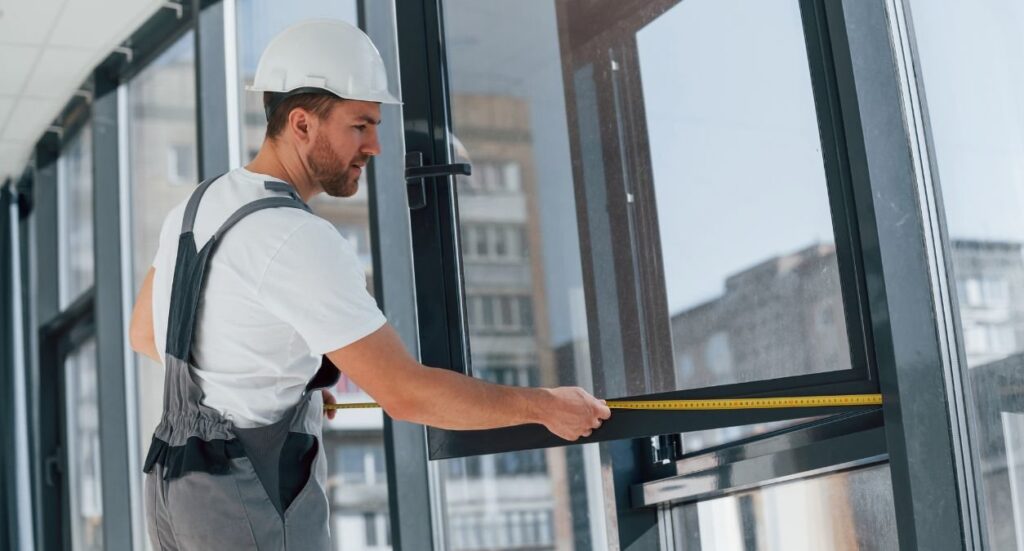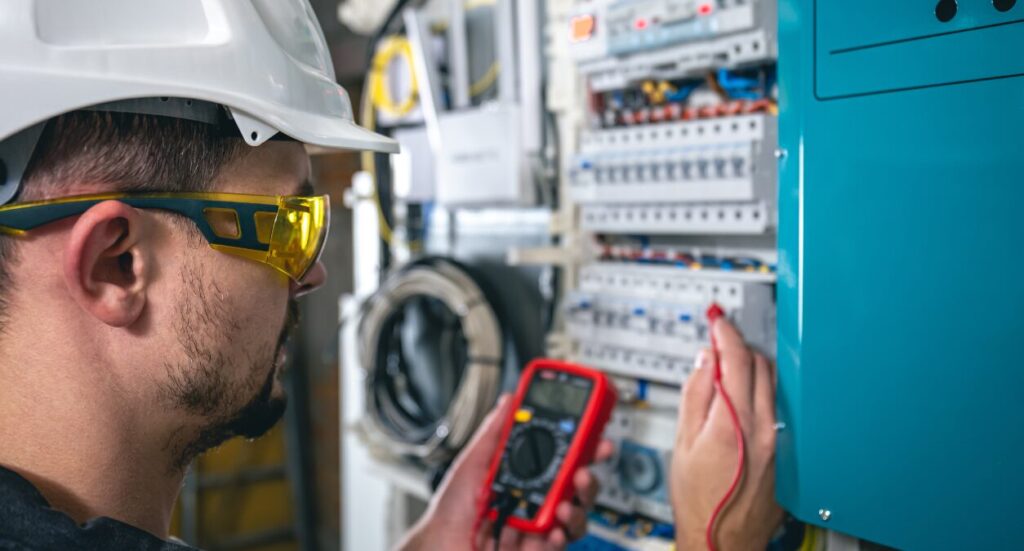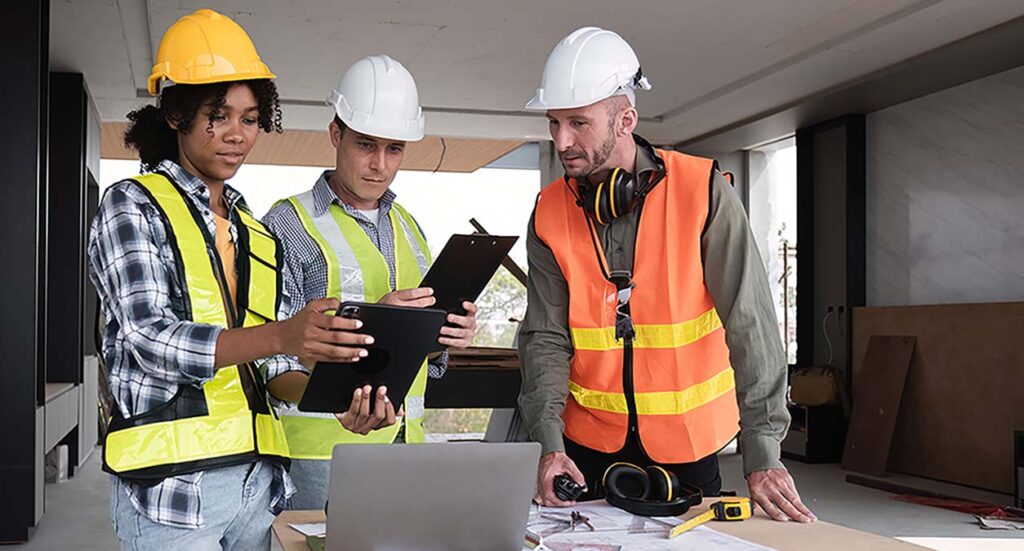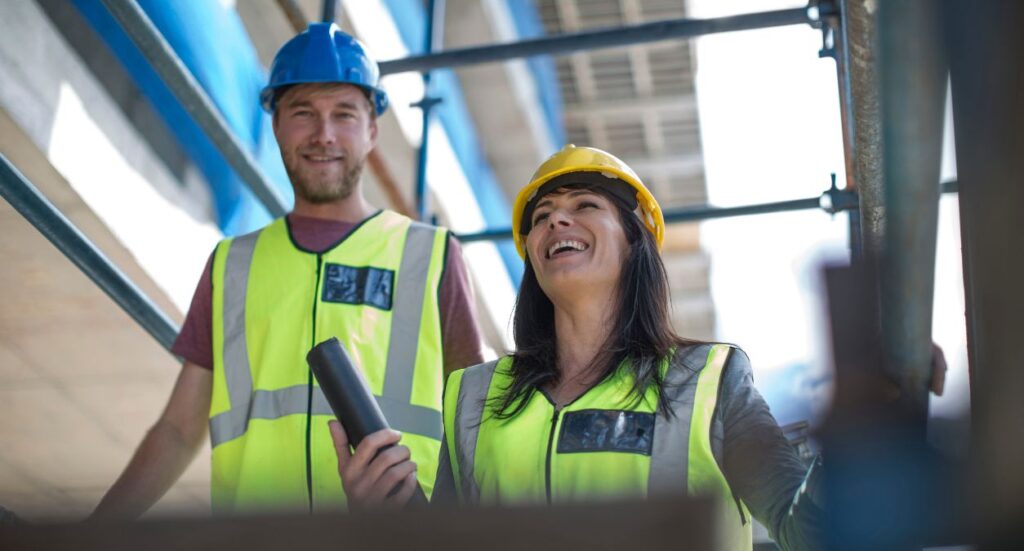Table of contents
Table of contents
If you’re a tradesperson in the UK, you’ve probably heard of the Competent Person Scheme (CPS). But what exactly is it, and why should you consider joining one? For most trades, if you’re an electrician, plumber, gas engineer, or window installer, being part of a recognised scheme can save you time, money, and hassle when it comes to meeting Building Regulations.
We’ve provided a breakdown of everything you need to know about Competent Person Schemes: what they are, the different schemes available, the pros and cons of joining, and how to register. Start thinking about what works for you.
What is the Competent Person Scheme (CPS)?

The Competent Person Scheme (CPS) is a government-approved initiative that allows qualified tradespeople to self-certify that their work complies with Building Regulations. This means you don’t need to go through local authority Building Control, which can be costly and time-consuming. However, it does mean you take on the responsibility for complying with regulations and bear the penalties if you fail to do this correctly.
CPS applies to various types of work, such as electrical installations, plumbing, heating, and glazing. It’s designed to ensure that work meets the required safety and quality standards while reducing unnecessary bureaucracy for skilled professionals.Competent Person Schemes are available in England and Wales. In Scotland and Northern Ireland, different certification schemes apply, so make sure you check local requirements if you work across borders.
List of Competent Person Schemes in the UK

There are several government-approved schemes in the UK, each catering to different trades. Below is a list of some of the most recognised ones:
- NICEIC – National Inspection Council for Electrical Installation Contracting
- NAPIT – National Association of Professional Inspectors and Testers
- FENSA – Fenestration Self-Assessment Scheme
- CERTASS – Certification and Self Assessment
- MCS – Microgeneration Certification Scheme – for solar, heat pumps, etc.
- Stroma Certification
Each scheme has its own set of criteria and application process, so it’s essential to pick one that best suits your trade and business needs.
Why join a Competent Person Scheme? (Pros & Cons)

Pros of joining a CPS
Legal Compliance
- A CPS helps ensure that work complies with Building Regulations without the need for local authority approval, saving time and effort.
- Particularly crucial for trades such as electrical work (Part P), plumbing, heating installations (Gas Safe), and window/door installations (FENSA).
- Reduces the risk of non-compliance fines or enforcement action, which could result in costly remedial work or legal trouble.
Customer Trust & Credibility
- Many homeowners and businesses prefer hiring registered tradespeople because it provides assurance that the work meets industry standards.
- Having a CPS registration can set you apart from non-registered competitors, leading to increased client confidence and potential referrals.
- Some industries, like gas and electrical work, require compliance schemes by law, making it a critical factor in customer decision-making.
Saves Time & Money
- Local authority inspections can be costly and time-consuming. A CPS allows tradespeople to self-certify their work, reducing delays.
- Avoids additional paperwork and administration associated with local Building Control applications.
- Particularly beneficial for trades that perform frequent installations, such as boiler engineers, electricians, and double-glazing installers.
More Work Opportunities
- Some contracts, particularly for commercial and new-build projects, require CPS registration as a prerequisite.
- Larger construction companies and property developers often prefer working with CPS-registered contractors to simplify compliance.
- Public sector projects or insurance-related work may require CPS accreditation for eligibility.
Insurance & Protection
- Many CPS memberships include benefits such as insurance-backed warranties or guarantees for customers.
- This can be a major selling point for potential clients, offering peace of mind regarding workmanship and durability.
- Some schemes provide dispute resolution services, which can be useful for resolving client disagreements efficiently.
Cons of joining a CPS
Membership Fees
- Most schemes require an annual membership fee, which can be a significant cost for small businesses or sole traders.
- Additional expenses may include assessment fees, ongoing training costs, and renewal charges.
- Trades with lower work volumes, such as self-employed carpenters or decorators, may not find the cost justified.
Compliance Checks & Audits
- Registered tradespeople must undergo periodic inspections and audits to ensure work meets the required standards.
- Non-compliance or poor-quality work could result in warnings, suspension, or removal from the scheme.
- This is particularly relevant for trades where safety is critical, such as gas engineers and electricians, who must meet stringent regulations.
Not Always Mandatory
- Some trades do not require CPS registration, making it an optional rather than essential expense.
- In cases where work does not fall under regulated Building Regulations, businesses might opt to work without a CPS and rely on local Building Control instead.
- For decorators, tilers, and general handymen, a CPS may not provide significant advantages unless they are working on larger projects.
How to register with a Competent Person Scheme
If you’ve decided that joining a CPS is the right move for your business, here’s a step-by-step checklist on how to register:
Step 1: Check Your Eligibility
Before applying, make sure you have the necessary qualifications, experience, and insurance. Most schemes require proof of competency and previous work.
Step 2: Choose the Right Scheme
Select the scheme that fits your trade. For example, if you’re an electrician, look at NICEIC or NAPIT.
Step 3: Complete the Application
Most schemes have an online application process. You’ll typically need to provide details of your qualifications, business information, and proof of work.
Step 4: Undergo an Assessment
Many schemes require an on-site inspection where an assessor reviews your work to ensure it meets the required standards.
Step 5: Get Approved & Start Certifying
Once approved, you’ll receive your CPS registration number and can start self-certifying work.
Step 6: Maintain Compliance
Some schemes require ongoing training, CPD (Continuing Professional Development), and periodic inspections to ensure you continue meeting standards
Differences between schemes for different trades

Not all CPS schemes operate in the same way. For high-risk industries such as electrical, gas, and structural work, CPS registration is often essential for legal and safety reasons. For lower-risk trades, the decision should be based on the specific business model, work volume, and target clientele.
Understanding these factors can help tradespeople determine whether CPS membership aligns with their professional goals and business needs. Here’s a quick look at how requirements can differ depending on your trade:
Electricians – Must comply with Part P of the Building Regulations, ensuring electrical safety in domestic installations. Certification is required for any new electrical installations or major modifications.
Gas Engineers – Must be Gas Safe Registered, which is a legal requirement to work on gas appliances safely. This includes boiler installations, gas pipework, and other gas-related works.
Window Installers – Must ensure compliance with Part L (energy efficiency regulations), ensuring correct thermal performance for new installations. Schemes such as FENSA and CERTASS provide certification.
Builders – May require registration with multiple CPS schemes depending on the type of work they undertake. Compliance with Part A (structural safety), Part B (fire safety), Part C (moisture protection), and Part L (energy efficiency) may be necessary. Builders involved in loft conversions or extensions may need a CPS for structural alterations.
Renewable Energy Installers – Those installing solar panels, heat pumps, or other renewable systems may need to be registered under MCS (Microgeneration Certification Scheme) to meet industry standards and access government incentives.
It’s worth noting that if you work across multiple trades, you may need to register with more than one scheme.
Other considerations on a Competent Person Scheme
Before registering onto a scheme, you might want to consider the following:
Insurance Requirements
- Many schemes require Public Liability Insurance, which protects against claims for injuries or property damage.
- In some cases, Professional Indemnity Insurance is necessary, particularly for trades offering design or advisory services.
- Some CPS schemes include insurance-backed warranties, providing extra reassurance for customers.
Competency & Training
- Some schemes require you to prove ongoing professional development (CPD), ensuring that your skills remain up to date.
- Certifications, refresher courses, and industry accreditations may be necessary for renewal of membership.
- Trades like electrical work, gas engineering, and renewable energy installations often have mandatory competency assessments.
Government Incentives & Grants
- Some CPS registrations, like MCS (Microgeneration Certification Scheme), allow you to offer customers access to grants or funding.
- Programs such as the Boiler Upgrade Scheme (BUS) provide financial incentives for homeowners installing renewable heating systems.
- Being part of a CPS can improve marketability, as customers often prefer contractors who can help them access funding or meet compliance requirements for grants.
Alternatives to CPS
If you don’t want to register, you can still complete work, but you may need to notify and pay for building control approval, which can be more expensive and time-consuming.
Joining a Competent Person Scheme can be a game-changer for tradespeople. It streamlines compliance with building regulations, saves money on inspections, and boosts customer confidence in your work.
However, it’s essential to choose the right scheme for your trade and business. Weigh up the pros and cons, check the eligibility criteria, and make sure it aligns with your long-term goals.
If you’re ready to take the next step, research your trade’s CPS options, apply, and start enjoying the benefits of self-certification!
Secure specialist tradesperson insurance from Protectivity
At Protectivity, we provide affordable tradesman insurance to cover specific scenarios commonly faced by trades. We have policies available for builders, electricians, carpenters, painters and more, just select your activity when you get a quote.
Our policies include public liability up to £5 million as standard; you then have the option to add Employers’ Liability insurance, Contractor Works cover, Plant and Tools cover, financial loss and employee tools (only if you’ve included the other benefits). That way, when unforeseen circumstances occur, you can ensure you’re protected from unexpected costs.
Find out more about our tradesman insurance and get a quote online.
Get Tradesman Insurance from Protectivity
*Disclaimer – This blog has been created as general information and should not be taken as advice. Make sure you have the correct level of insurance for your requirements and always review policy documentation. Information is factually accurate at the time of publishing but may have become out of date.
Last updated by
















